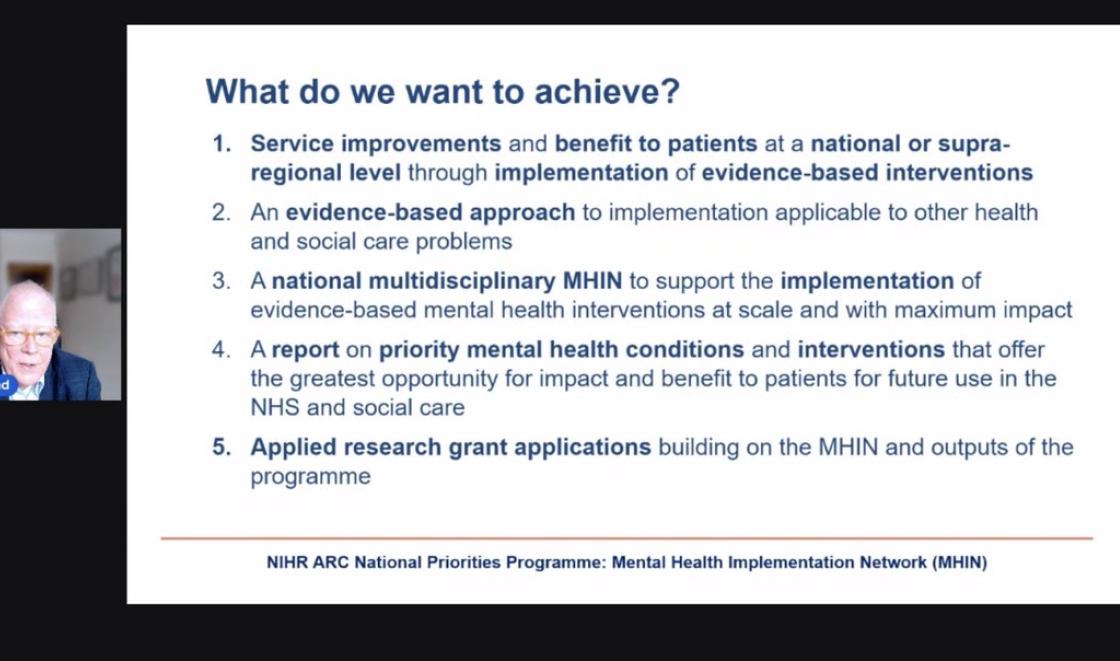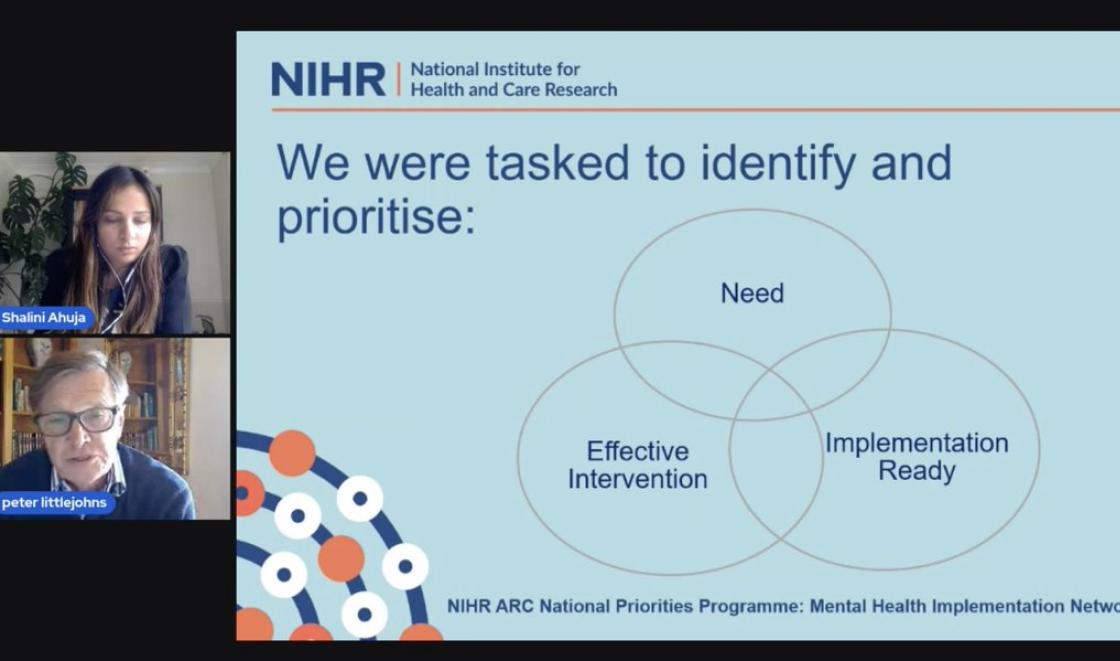The Mental Health Implementation Network (MHIN) is a nationwide NIHR-funded programme that connects mental health stakeholders across government, health services, the third sector, universities, Applied Research Collaborations, commissioners, Academic Health Science Networks, and Experts by Experience and the public, to catalyse the implementation of effective mental health interventions. It is funded by the NIHR for three years until October 2023.
The launch was chaired by Professor Sir Graham Thornicroft, King’s College London, who explained that the event was designed to provide mental health stakeholders the opportunity to discuss and help define the interventions by sharing their experiences.
Following this Steve Gilbert, OBE, an Anti-Racism Consultant and Expert by Experience spoke powerfully about his experiences of mental health and racial discrimination and how this has informed his work aiming to improve mental health care in England, particularly working with the NHS Race and Health Observatory.
Steve invited everyone at the event to consider the question:


